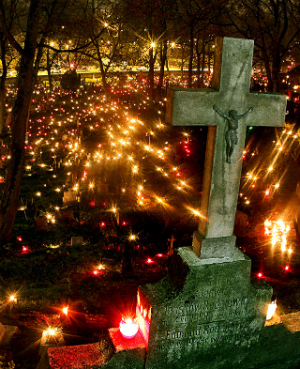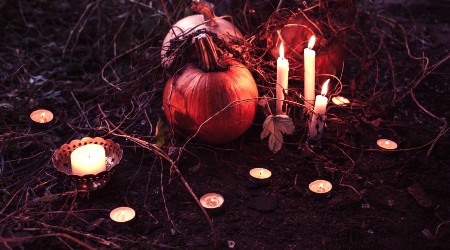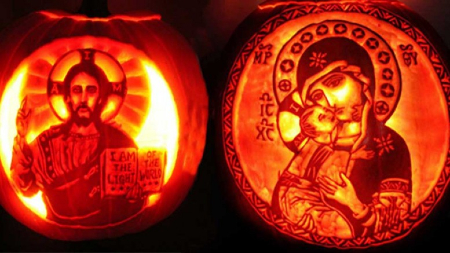 Hi readers, it seems you use Catholic Online a lot; that's great! It's a little awkward to ask, but we need your help. If you have already donated, we sincerely thank you. We're not salespeople, but we depend on donations averaging $14.76 and fewer than 1% of readers give. If you donate just $5.00, the price of your coffee, Catholic Online School could keep thriving. Thank you. Help Now >
Hi readers, it seems you use Catholic Online a lot; that's great! It's a little awkward to ask, but we need your help. If you have already donated, we sincerely thank you. We're not salespeople, but we depend on donations averaging $14.76 and fewer than 1% of readers give. If you donate just $5.00, the price of your coffee, Catholic Online School could keep thriving. Thank you. Help Now >
What do we do AFTER Lent?
Chocolate bunnies and marshmallow Peeps have graced the shelves of U.S. stores for weeks in anticipation of Easter, but now that the actual Easter Season has begun, how should Catholics observe it?

Easter Sunday begins the liturgical season of Easter, which continues through the celebration of the Ascension to Pentecost Sunday.
Highlights
Catholic Online (https://www.catholic.org)
4/29/2019 (5 years ago)
Published in Lent / Easter
Keywords: Lent, Easter, Pentecost, Ash Wednesday, Holy Season
Washington D.C. (CNA) - "We cannot, as Christians, walk out of Easter liturgy and wash our hands of the business. Our life is forever changed, and it can never be what it was, if we believe that a man has walked out of the tomb," said Fr. Hezekias Carnazzo, director of the Institute of Catholic Culture.
Easter Sunday begins the liturgical season of Easter, which continues through the celebration of the Ascension to Pentecost Sunday, 50 days in all. Each day of the Octave of Easter, the first eight days of the season, is a solemnity, ending on the Second Sunday of Easter, or Divine Mercy Sunday.
The Easter Triduum follows the 40-day penitential season of Lent, which is marked by penance, prayer, and almsgiving.
However, once the Triduum is over and Catholics cast off their Lenten penances, what comes next? Was Lent just one big detox program, and is the Easter Season a marathon of steak dinners, chocolate eggs, Netflix binges and bigger bar tabs, while practices of daily Mass and prayer are neglected?
Not so, said liturgical experts, who stressed that Catholics can both celebrate Easter and also grow in their spiritual life.
How do we do that? First, Catholics must remember the spiritual focus of the season, which is on Christ's Resurrection and the evangelization that immediately follows from it, Fr. Chrysostom Baer of the Norbertines of St. Michael's Abbey in Orange County, Calif., told CNA.
"The apostles were trying to convert the world because Jesus rose from the dead. And they really got the impulse to go at Pentecost, but the message is 'Jesus died and rose'," he said.
This evangelization was powered by a type of "evangelical poverty," he said, pointing to the Acts of the Apostles: "The community of believers was of one heart and mind, and no one claimed that any of his possessions was his own, but they had everything in common. With great power the apostles bore witness to the resurrection of the Lord Jesus, and great favor was accorded them all."
While Easter is not a time for hairshirts and fasting, he clarified, Catholics shouldn't feel like they must abandon good Lenten practices during Easter, if those practices help them be better Catholics -- especially if they gave up things that were occasions of sin for them.
The Resurrection should change everything about our lives, Fr. Hezekias insisted, because in the words of St. Paul, since Jesus rose from the dead, "death no longer has dominion over Him."
"It's no great mystery that God is not able to be controlled by death. The great mystery is that a man walked out of the tomb that day. He was filled with Divine life. He's the God-man. His divinity destroyed the power of death, but destroyed the power of death over us," he said.
"We can say now, we who have been baptized in Him, death no longer has dominion over us," he said. "Easter, Pascha, is the Christian life. Death no longer has dominion over us."
This means that the created world has been brought back "into communion with God," he said, and that realization should change how we see everything.
"I would think the first best way to celebrate the season is to go to daily Mass. That is bar none, the best," Fr. Chrysostom said. "Because it really puts you in the mind of the Church, with regard to the season. The prayers change every day, but they're all focused on the Resurrection."
Catholics should also continue any good practices they fostered during Lent like prayer or almsgiving, he insisted, and should give attention to virtues they cultivated from Lenten penance.
"The Easter Season is for fostering those virtues that you've planted during Lent, and allowing them to grow," he said. This requires taking "concrete steps" and not just vague promises to ensure that good habits are maintained, he added.
For instance, if someone gave alms during Lent, they could resolve to give money to the poor a certain number of times per week, he said.
However, Easter shouldn't just be lived at church, but "it's got to live out in our everyday lives," Fr. Hezekias told CNA. There must be a "more intense realization that every aspect of my life has come into communion with God."
"What about reading the Gospel in our homes or singing the Gospel in our homes before we bless the food at the dinner of that Sunday?" he suggested.
Another way to do this is for Catholics throw a party, he said, which we can enjoy in a new way having first fasted during Lent.
"The reason the Church has us set aside meat [during Lent] is because we've become dependent on those things," Fr. Hezekias explained. "The key to the celebration of Easter and Pascha is the re-ordering in our life, that now I eat meat as a gift from God," he said.
If someone has given up meat for 40 days, he explained, they will appreciate its goodness all the more: "Suddenly they take a bite of meat, and what do you say? 'Thank you, God!'"
And Catholics should party together.
"I think what makes a feast really a feast is that it's shared, with friends," Fr. Chrysostom said, and where drinks served "heightens the conviviality and the joy."
"Everyone should be asking themselves right now, who should I invite to my home [during the Easter Season]?" Fr. Hezekias said. They should also consider inviting the newly baptized at their parish over to their homes.
"We've forgotten our ability as Christians to go out and really have a party," he said. "Our society is starving because of that. We're the ones who are supposed to be showing everyone else what true joy is, but unfortunately we've forgotten it ourselves."
"We've got to re-discover that for the sake of society."
---
This article was originally published on CNA April 18, 2017.
'Help Give every Student and Teacher FREE resources for a world-class Moral Catholic Education'
Copyright 2021 - Distributed by Catholic Online
Join the Movement
When you sign up below, you don't just join an email list - you're joining an entire movement for Free world class Catholic education.
-

-
Mysteries of the Rosary
-
St. Faustina Kowalska
-
Litany of the Blessed Virgin Mary
-
Saint of the Day for Wednesday, Oct 4th, 2023
-
Popular Saints
-
St. Francis of Assisi
-
Bible
-
Female / Women Saints
-
7 Morning Prayers you need to get your day started with God
-
Litany of the Blessed Virgin Mary
All Saints' Day, Halloween and All Souls' Day: What's the difference?
-

Should Christians Celebrate Halloween?
-

Since when did Halloween become a Christian holiday?
-
ADORABLE: A Little Boy's Heartfelt Lunchtime Prayer
-
Scientists Decode 3,000-Year-Old Babylonian Tablet, Revealing Potential Location of Noah's Ark
Daily Catholic
 Daily Readings for Friday, November 01, 2024
Daily Readings for Friday, November 01, 2024 St. Valentine Berrio-Ochoa: Saint of the Day for Friday, November 01, 2024
St. Valentine Berrio-Ochoa: Saint of the Day for Friday, November 01, 2024 Litany of the Saints: Prayer of the Day for Friday, November 01, 2024
Litany of the Saints: Prayer of the Day for Friday, November 01, 2024- Daily Readings for Thursday, October 31, 2024
- St. Wolfgang: Saint of the Day for Thursday, October 31, 2024
- Memorare: Prayer of the Day for Thursday, October 31, 2024
![]()
Copyright 2024 Catholic Online. All materials contained on this site, whether written, audible or visual are the exclusive property of Catholic Online and are protected under U.S. and International copyright laws, © Copyright 2024 Catholic Online. Any unauthorized use, without prior written consent of Catholic Online is strictly forbidden and prohibited.
Catholic Online is a Project of Your Catholic Voice Foundation, a Not-for-Profit Corporation. Your Catholic Voice Foundation has been granted a recognition of tax exemption under Section 501(c)(3) of the Internal Revenue Code. Federal Tax Identification Number: 81-0596847. Your gift is tax-deductible as allowed by law.







 Daily Readings for Friday, November 01, 2024
Daily Readings for Friday, November 01, 2024 St. Valentine Berrio-Ochoa: Saint of the Day for Friday, November 01, 2024
St. Valentine Berrio-Ochoa: Saint of the Day for Friday, November 01, 2024 Litany of the Saints: Prayer of the Day for Friday, November 01, 2024
Litany of the Saints: Prayer of the Day for Friday, November 01, 2024

